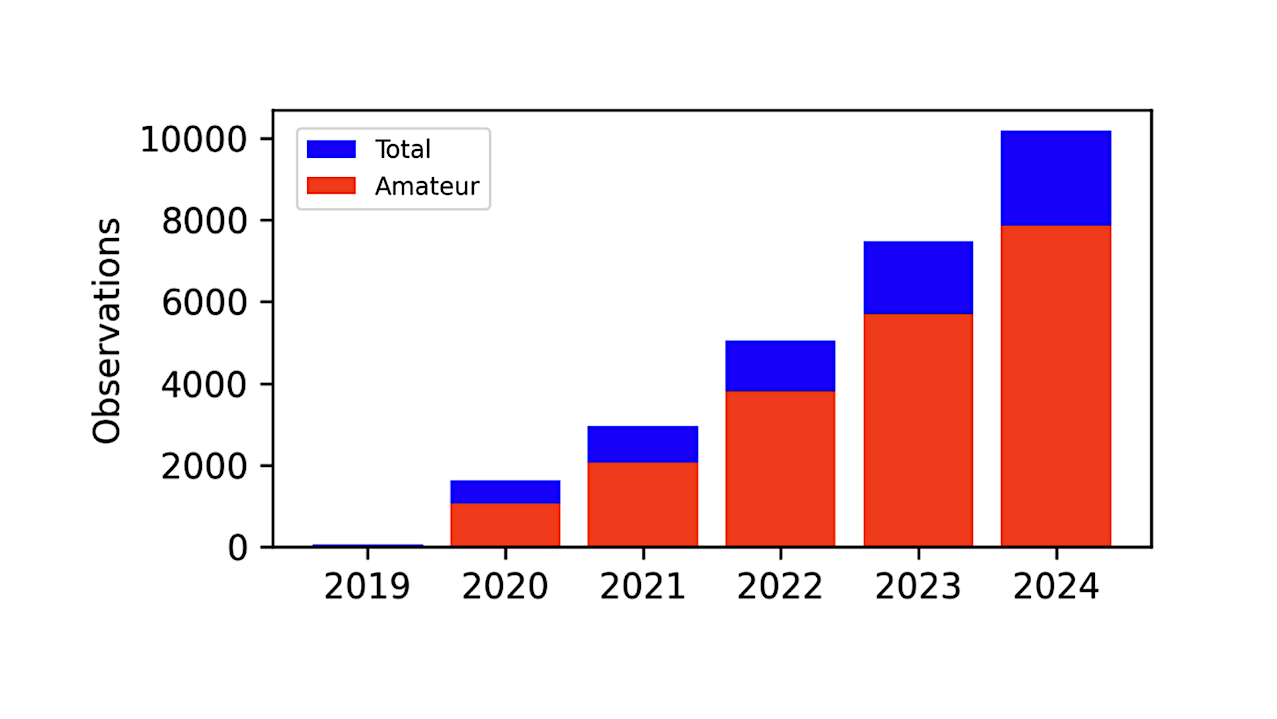The ExoClock project has announced an updated catalogue that includes ephemerides for 620 exoplanets, integrating approximately 30,000 measurements from both ground-based and space telescopes. This comprehensive resource aims to enhance the monitoring of exoplanets, thereby improving the efficiency of future astronomical observations.
Developed within the context of the European Space Agency’s (ESA) Ariel space mission, the ExoClock catalogue now features data from the Transiting Exoplanet Survey Satellite (TESS), which presents unique challenges due to its shallow transits and bright host stars. The updated catalogue comprises 277 planets from TESS, requiring specialized observing strategies to accurately track their movements.
The project’s latest findings indicate that 45% of the planets in the catalogue needed updates, reflecting significant advancements in prediction accuracy. This new data has improved prediction uncertainty by an order of magnitude, underscoring the effectiveness of larger telescopes and innovative methodologies, such as synchronous observations conducted with smaller telescopes.
The ExoClock project operates under the principles of open science, ensuring that its tools and outputs are accessible to the global academic community and beyond. Such inclusivity not only fosters collaboration among diverse researchers but also enhances the overall quality of astronomical data. The approach supports the efficient scheduling of observations, particularly from major observatories like the James Webb Space Telescope (JWST), Very Large Telescope (VLT), Extremely Large Telescope (ELT), and Subaru.
According to project lead Angelos Tsiaras, the collaborative nature of ExoClock has been instrumental in democratizing science. “Our goal is to create a platform where everyone can contribute, thereby enriching the scientific process and improving the quality of our findings,” Tsiaras stated.
In addition to the catalogue, the project has made significant strides in identifying new planets exhibiting Transit Timing Variations (TTVs). This highlights the necessity of extensive observational coverage to capture the complexities of planetary systems.
The ExoClock initiative represents a shift in how the scientific community approaches the collection and sharing of astronomical data. With its emphasis on collaborative efforts, the project is paving the way for more efficient and effective observations in the field of exoplanet research. The full data release and machine-readable versions of the catalogue are available online, marking a significant contribution to the ongoing exploration of extraterrestrial worlds.
As the ExoClock project continues to evolve, its impact on exoplanet science and the broader astronomical community is expected to grow, providing a critical resource as researchers work to uncover the mysteries of the universe.







